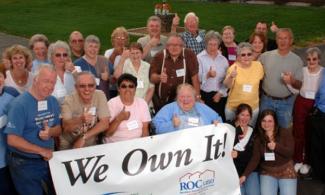
Cooperative Organizing in the Pacific Northwest
As the awareness of the cooperative model continues to improve among the population, the work of creating cooperatives becomes one of partnerships and engagement. The experience of the Pacific Northwest has been one of strong networks. Continuing the culture of creating new relationships and systems comprises a critical component for the next wave of cooperative development.
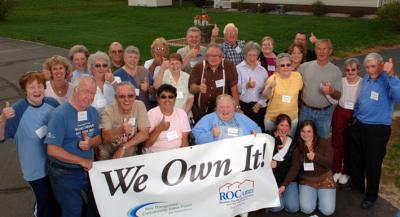 One of the most successful networks in our region has been through the Northwest Cooperative Development Center’s (NWCDC) partnership with ROC-USA. This national organization, based in New Hampshire, has provided on-the-ground technical assistance through its affiliation with NWCDC resulting in the conversion of nine manufactured housing communities into resident-owned cooperatives (four within the last year alone). ROCs are housing cooperatives in which the residents own their own unit (a manufactured home) and collectively own the land it rests upon. Resident-owners maintain the property and govern their cooperatives keeping the rents affordable.
One of the most successful networks in our region has been through the Northwest Cooperative Development Center’s (NWCDC) partnership with ROC-USA. This national organization, based in New Hampshire, has provided on-the-ground technical assistance through its affiliation with NWCDC resulting in the conversion of nine manufactured housing communities into resident-owned cooperatives (four within the last year alone). ROCs are housing cooperatives in which the residents own their own unit (a manufactured home) and collectively own the land it rests upon. Resident-owners maintain the property and govern their cooperatives keeping the rents affordable.
Another important partnership in the Northwest has been engaging educational organizations. NWCDC staff often participate in Community college classes to teach about cooperatives. One staff member has developed and teaches a course on worker cooperatives during the summer session at The Evergreen State College. Another important partnership involves Pinchot University’s Center for Inclusive Entrepreneurship, where NWCDC provides Technical Assistance to those enrolled in their cooperative academy.
 NWCDC has also been engaged with some new worker coops in the region, such as the New Moon Cooperative, Northwest Construction Cooperative and the Olympia Food Coop to help plan a worker exchange program with the Venezuelan cooperative Cecosesola. An exchange in 2015 will be the second exchange program with Cecoseola and it allows members of both cooperative communities to learn about how the coop model expresses itself in different cultures and political climates. Cecosesola has an amazing story of community building and collaboration among divergent groups while also maintaining a commitment to non-hierarchical governance structures.
NWCDC has also been engaged with some new worker coops in the region, such as the New Moon Cooperative, Northwest Construction Cooperative and the Olympia Food Coop to help plan a worker exchange program with the Venezuelan cooperative Cecosesola. An exchange in 2015 will be the second exchange program with Cecoseola and it allows members of both cooperative communities to learn about how the coop model expresses itself in different cultures and political climates. Cecosesola has an amazing story of community building and collaboration among divergent groups while also maintaining a commitment to non-hierarchical governance structures.
Regional Food Co-op Conference
Finally, in the theme of collaboration and mutual support, in February of 2016, NWCDC and other co-operative sponsors will be hosting the 4th Regional Food Co-op conference entitled “Cultivating Cooperative Roots” in Spokane, Washington. The conference will be focusing on three objectives:
Build cooperative business skills to support successful ventures.
Nurture strategic alliances and strengthen relationships between participants with support of access to local foods as a common thread between co-op sectors.
Celebrate successful examples and learn from other cooperatives.
More and more people are choosing the cooperative model to express their entrepreneurial spirit in the Northwest. Co-operatives, by their nature, are not solitary acts. The success of a co-op depends on many hands, brains, and hopes. So, too, collective knowledge, experience and collaboration strengthen co-op development.
Go to the Regional Cooperative/Solidarity Economy Networks theme page
Go to the GEO front page
Citations
John McNamara (2015). It Takes a Village to Create an Economy: Cooperative Organizing in the Pacific Northwest. Grassroots Economic Organizing (GEO). https://geo.coop/story/it-takes-village-create-economy

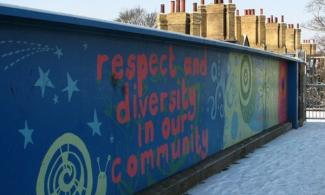
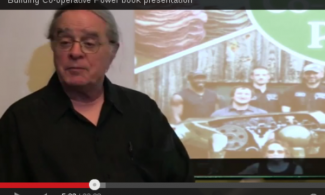
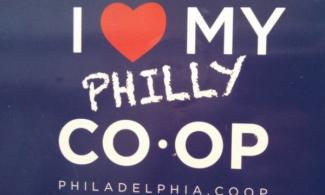
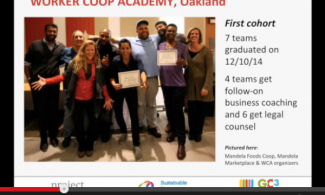
Add new comment